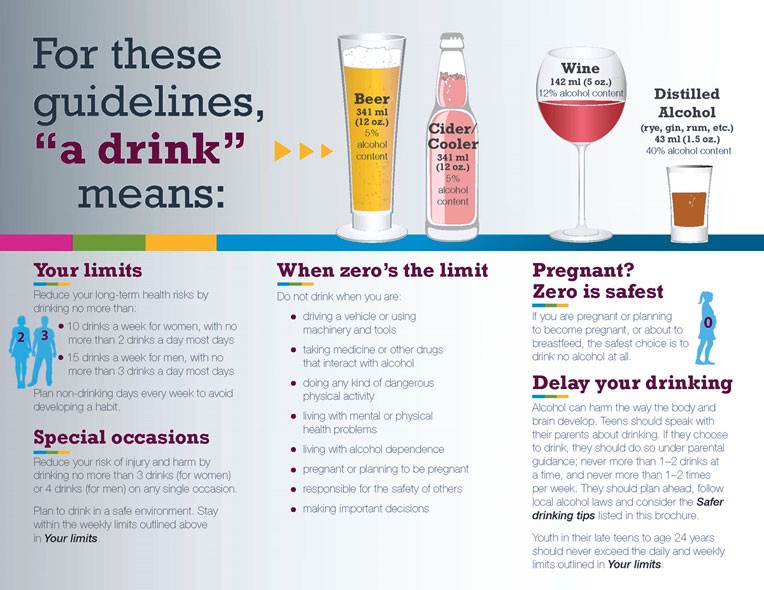That last drink of the evening. It feels pretty good. But what happens when it feels too good? Alcohol can be a great compliment to any party or social event, but it can also be abused and lead to alcohol addiction. Keep in mind that drinking in moderation is relatively safe, but excessive drinking can lead to life-altering problems.
Breaking Down Alcohol
The effects of alcohol can be quite enjoyable. But what exactly does it do to our bodies? Is it just some magic potion that makes us forget about our everyday struggles? To an extent, alcohol is considered a depressant drug. It shuts down certain physical and emotional receptors in the brain, allowing us to feel more “free”. It’s classified as a drug because it can alter a person’s mental state and if taken in excess can lead to alcohol addiction.
In terms of alcohol tolerance, men naturally have a higher tolerance than women, because they can metabolize it in their bodies faster. Women have a higher body fat content and have less water in their body’s than men, which makes it harder for their body to dilute the alcohol. As a result, the recommended daily dose of alcohol for men is about 2 drinks (no more than 14 weekly) and about 1 drink daily for women (no more than 7 weekly). This would be considered a low-risk or moderate drinking regiment. But remember, all drinking carries some risk.
When Casual Drinking Becomes Alcohol Addiction
A big warning sign of alcohol addiction is when drinking alcohol becomes necessary to have a good time. It’s commonplace to have a few drinks during the week or a drink or two at a party, but according to Askmen.com, “if drinking is a deciding factor in where you’re going or if you go at all.” Then it becomes an issue.
Around 1 in 12 adults have a drinking problem, but only two-thirds of them are classified as alcoholics. For alcoholics, alcohol is what keeps them going and they become controlled by it, to the extent that they depend on it during daily life. If they don’t drink, they break down and go through withdrawals.
Another type of person who struggles with alcohol is called a “heavy drinker.” These people may appear fine on the outside, but if they are drinking beyond the recommended amounts (15-20 drinks weekly) their bodies are now at risk. Subsequently, common physical side-effects of heavy drinking include liver damage, heart disease, pancreatic damage as well as issues involving sexual health. In addition to the possible physical effects, alcohol can also take a toll emotionally. Increased hostility or mood swings in the absence of alcohol are frequent occurrences in the abusive drinker. Another indication of alcohol addiction is when a person starts to neglect their regular responsibilities.
A Word From An Expert
MiLLENNiAL recently caught up with Leigh Silverang, a couple’s therapist from Philadelphia with a degree in criminology and a masters in marriage and family therapy, who has worked with families on a variety of issues for almost decade.
On the matter of alcohol abuse, Silverang states that alcoholics are usually very sneaky. They are often secretive and smuggle alcohol into anything and everything, including purses, bags, and work desks. “They will hide it anywhere,” says Silverang. When asked about the road to recovery, she says “as soon as you conquer the addiction, you are always in recovery. And while in recovery, relapses are common and expected. The people who are overly enthusiastic and optimistic about the recovery process are usually setting themselves up for a slide.”
Silverang also points out how alcohol abuse can dominate and ruin marriages and can contribute to other marital issues such as cheating. She also puts the myth of the “functional alcoholic” to rest. “There is no such thing, you may be able to handle regular day activities for a short period time, but you will eventually self-destruct. You can’t keep up the charade forever.
Drinking Is Okay, But Marijuana Isn’t?
Why are we more likely to reprimand someone for lighting up a joint, when the person downing a bottle of Jack Daniels gets by unscathed? Drinking is seen as socially acceptable, because it is legal. While Marijuana, being illegal is often tabooed and stigmatized. Medical daily reports suggest “teenagers who use marijuana are more likely to be viewed in a negative light, most notably by authority figures, and also stand a higher risk of facing legal ramifications compared to those who use alcohol.” Even though marijuana, unlike alcohol can be used medicinally, it still has a bad reputation.
What Are The Benefits Of Alcohol Reform?
If you suffer from alcohol addiction and wish to seek treatment, there are several benefits and rewards for getting help. These include: the improvement of relationships, feeling better physically and mentally and also having more time to spend on the things you really care about, like family, friends, and fun activities. Not to mention saving that money you would normally spend on drinking. It’s an expensive habit!
Remember, you don’t have to be the one standing on the table at the party. Alcohol in small quantities is low-risk and in some cases can be healthy. While alcohol addiction is treatable, it’s best to nip it in the bud and prevent the issue before it escalates.
If you are suffering from alcohol addiction, or suspect a loved-one of having a drinking problem, visit Alcoholics Anonymous for information and resources.

